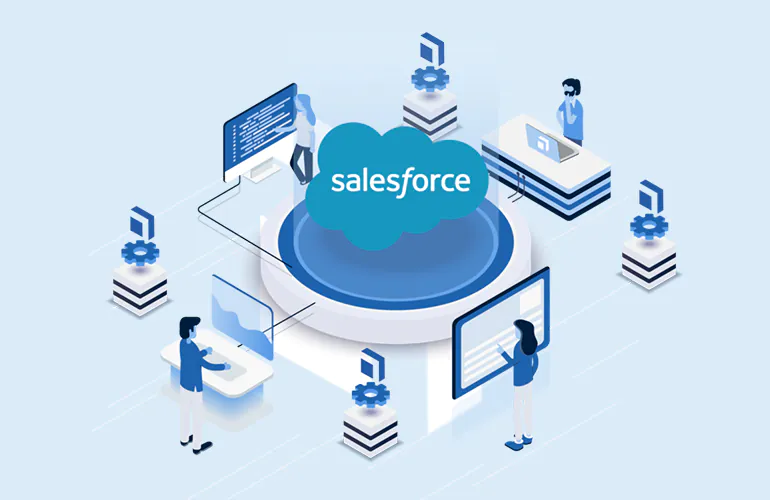
Tips on Building your Salesforce Development Team
Although beneficial in many ways, software as complex as Salesforce can eventually cause issues in an organization when not maintained regularly. Aside from updating the software (Salesforce rolls out three updates in a year), it should be evaluated regularly to ensure that it continues to function at its best and meet the demands of the organization.
There are two ways to make the most out of Salesforce: work with a managed service provider or MSP or build an internal team. If the latter is more appropriate for your needs and budget, here are a few tips to consider to help you build a Salesforce development team.
Take Control of the Hiring Process
Taking ownership of the hiring process guarantees you find and hire the right candidates for the role. Start by defining the job as a series of performance objectives, not a long list of skills and experience. This enables you to attract a larger talent pool.
Next, post the job ad with a compelling tagline to capture candidates’ professional interests. Once a candidate shows interest, let them submit a two-paragraph write-up detailing their accomplishments in terms of work. This is an excellent way of weeding out applicants who are simply interested and professionally qualified.
Hire Passionate People
Look for developers who have passion for what they do. For example, if you’re going to hire a dedicated Salesforce engineer, choose a candidate who exerts time and effort to code their personal projects or has passion projects.
Google, one of the world’s tech giants, implemented a 20% policy, where software employees spend 20% of their time at work on personal ideas and projects. The policy resulted in increased employee enthusiasm, energy, and productivity.
Pay Attention to Soft Skills
Technical skills are crucial for building an effective Salesforce team but shouldn’t be the only qualification you look into. The candidates’ soft skills are just as important as they impact the long-term success of the team.
Ideally, you should pay attention to the following soft skills:
Collaboration: Ensure that the members of your Salesforce development team know how to collaborate with others. Salesforce is versatile and can be used by different teams within the organizations, which is why it’s essential to look for team members who can function effectively when assigned to teams.
Patience: Only consider applicants who are patient. Whenever they find issues, they should address them and move on rather than slamming their fists or head on the table.
Social skills and communication: Establish a clear priority during the hiring process that emotional intelligence and empathy are crucial in delivering high-quality work.
Provide the Essential Tools and Work Environment
Your Salesforce development team is expected to utilize their skills and experience in the workplace while you’re responsible for making their workplace comfortable and conducive for work. Neglecting the overall wellness of every member of the team can lead to stress and burnout, preventing them from accomplishing short- and long-term goals.
Provide tools and resources to your Salesforce development team — whether that can be tools, apps, or office equipment that help them grow professionally without straining their mental health and causing frustration.
Communicate Proactively
Communication is a two-way street. As a manager, it’s important to actively listen to your Salesforce development team to understand the progress of their projects.
Make it a habit to ask the following questions whenever the team receives projects:
What are you working on?
Did the project come together as you planned? Why or why not?
What can be improved moving forward?
Checking in on your Salesforce development team makes every member feel valued and appreciated. This is a key ingredient in creating meaningful relationships.
Avoid Stress and Burnout
Stress is common in the workplace. But as a manager, you are responsible for keeping stress to a minimum, not the one causing it.
Avoid forcing teams to produce results within unrealistic timelines or beyond their capacity. Most importantly, don’t assign multiple projects to your team, expecting they can effectively juggle everything at once and produce the best results.
Over time, these will lead to burnout and adversely affect the productivity of the entire team. Burnout can make team members feel less engaged at work and increase their risks of fatigue.
Build the Best Team
Due to its complexity, Salesforce can’t be implemented and then forgotten. It’s crucial to create a plan and build a team to make the most out of the software. This way, your organization continues to expedite projects and boost productivity levels with Salesforce.



